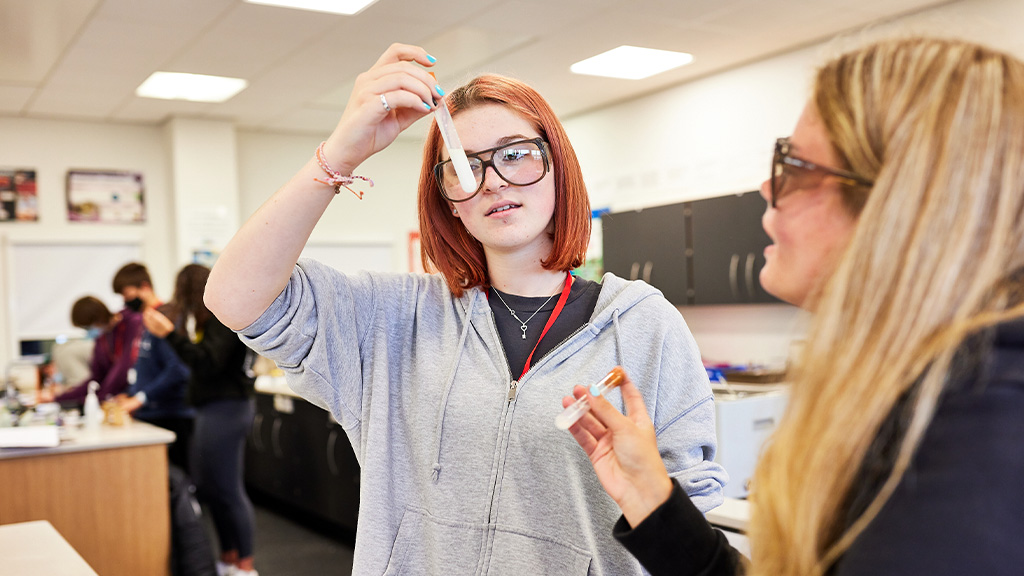Course Overview
This course can either be studied at Wakefield College or Selby College.
This course reflects aspects of employment within professional science organisations such as quality control laboratories, research and development, biotechnology and the pharmaceutical industry. It includes components of each of the three science disciplines and as such enables students to progress onto further study, high-level apprenticeships, or employment in any of these sectors. Studying Level 3 Applied Science will provide you with many transferrable skills and enhance your ability to be analytical, work practically and communicate effectively.
Successful completion of this course will result in the awarding of a BTEC Level 3 Extended Diploma in Applied Science, equivalent in UCAS points to 3 A level qualifications. Thus, this qualification provides a platform for entry on to a wide variety of university courses.
The course builds on knowledge and skills gained at GCSE level, extending them to Level 3, enabling you to develop practical scientific skills in the context of a variety of scientific investigations. Students of Level 3 Applied Science develop wide-ranging skills such as report writing, research methods, planning and risk assessing practical activities. The course is taught using real-world contexts, making the content both relevant and interesting to study. Assessment is achieved via a mixture of on-going portfolio-based assignment work and formal examinations to test your knowledge and understanding of the topic areas.
A great variety of opportunities are on offer in conjunction with this course. You will get to work with experts and professionals in different fields of Science and Medicine to produce resources used in ‘real life science’. You will have opportunities to go on trips and visits to laboratory and industry-based settings to see how the science and skills you are learning is applied in these environments.
You will have the opportunity to partake in a diverse range of investigative techniques including dissections and microbiological techniques, and you will devise a project of your choice. In Chemistry, you will undertake analytical chemistry techniques and organic synthesis and Physics will give you experience in a wide range of specialist investigations. There is also the opportunity to steer your course down the Biomedical Science route by selecting optional units in the second year which focus on physiology, endocrinology and reproductive biology.
What You Will Study
The mandatory units include:
- Principles and Applications of Science
- Practical Scientific Procedures and Techniques
- Science Investigation Skills
- Contemporary Issues in Science
- Investigative Project
Alongside these students will be taught a selection of specialised Biology, Chemistry and Physics units.
- How You Will Be Assessed
The course will be assessed through a mixture of externally assessed exams (40%) as well as internally marked assignment work .
The internally assessed units will typically be assessed through four written assignments. These are likely to include tasks such as the write up of a practical investigation including a full analysis of results, short answer questions, research questions and occasionally an individual or group presentation.
Resubmissions for assignments can only be granted if deadlines are met by the student.
- Entry Requirements
4 GCSEs at Grade 9-4, including Maths and Science.
- Further Study
Many of our students progress to university to study degrees such as forensic science, biomedical science, applied biology, biochemistry, microbiology and combined science.




